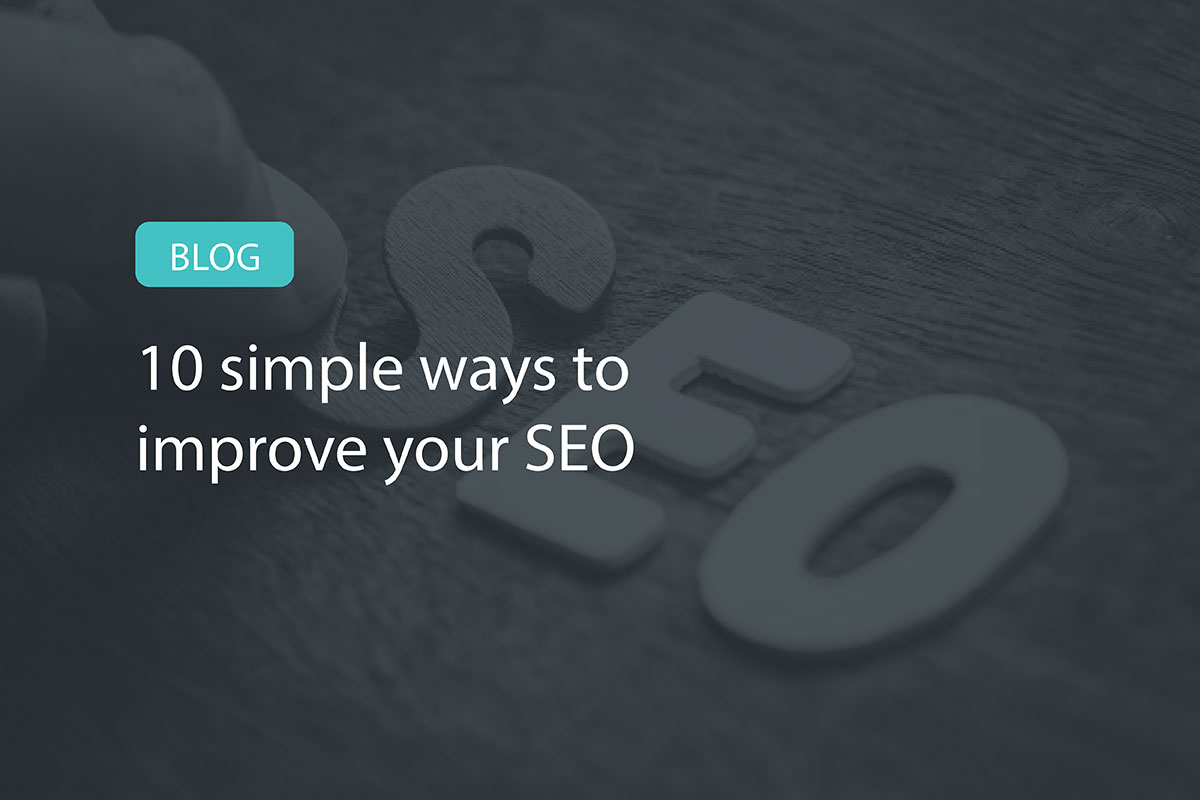Let’s be honest we’ve probably all been exposed to information on SEO in some form over the last few years. As you’ll likely be aware SEO – Search Engine Optimisation – is the process of improving rankings in search engines. Google ranks websites it considers relevant and authoritative when a user searches a keyword and displays them after a search. According to HubSpot, the top 5 results on Search Engine Page Results get 75% of user clicks, highlighting how crucial it is to rank well for your keywords.
Here’s our 10 easy tips to improve your SEO, helping to boost your ranking, improve visitor experience and convert more leads.
Master your keywords
Keyword research is a great place to start when improving your SEO. It provides an understanding of the words and phrases used by prospective clients when searching for the services you offer and enables you to plan for these words across your site and in your communications. If you need help with these, Google Keyword Planner is a good tool for this. Be careful not to overuse keywords however, Google can punish you for trying to use too many.
Produce regular content
If you aren’t producing regular content, consider posting to your website regularly to keep it up-to-date and relevant. A blog or page updates are a great way to keep content on the site fresh and indicates to Google that your website is still functioning and of value to those browsing. A blog is an easy win here and will also support other aspects of your marketing strategy.
Make your content high quality
Following on from producing regular content, it’s even better for your SEO when the post is useful, relevant and answering the Google search of the person browsing. High quality content that keeps people on your page and leads to conversion indicates to Google that people are getting value from your website and that they should direct more people to it. If it gets bookmarked, even better! So, make it informative, engaging and relevant.
Decrease page load speeds
Speed is crucial. Google and Bing use page loading speeds in their algorithm for website ranking, so if you are slow, you’ll be impacted immediately. On top of search engines, most customers will not wait even a few seconds for a page to load before moving onto the next relevant page – this will affect your overall traffic, your bounce rate and the overall SEO ranking. To improve your website speed you can use plug-ins, make sure images are optimised (critical) and code is clean and streamlined.
Header tags
Don’t have long paragraph after long paragraph of content on your site. Use header tags to break down information and give your website structure, organising and formatting your content so it is easily digestible. This helps readability, which will keep people on your site, and will help Google crawl the page.
Be mobile optimised
According to Google, more than 50% of searches begin on mobile. If your site isn’t mobile optimised, you are going to be delivering a poor experience to potentially 50% of your visitors. If people are leaving your site immediately due to poor optimisation, your SEO will be suffering. Ensure the experience is consistent across both platforms.
Broken links
Broken links are one of the worst causes of poor SEO. 404 error pages are one of the biggest red flags for search engines. Make sure you go through your site and ensure you aren’t directing people to broken links. Broken Link Check does what it says on the tin – identify them and get them fixed.
Outbound Links
Using outbound links to well respected authority sites will increase trust signals from Google, which is a great way to improve SEO. Linking out to other websites can help you to become part of the authority on a subject and area, as well as help in the long run to generate inbound links to further support your SEO.
Register your business and get reviews
Create a Google My Business account to make sure that you appear in local search results for queries specific to your area. This area of SEO will get more important as people use voice recognition to ask Google more and more questions on their home devices. Reviews are also a great way to improve SEO locally and indicate a trusted website.
Ensure your page URLs are user-friendly
Be sure to use your keywords in your page URLs. This will indicate to Google when crawling the pages that the website is a good source of information for that query, as well as making it easier for people to share on social.
While there are lots of nuances to getting your SEO strategy spot on, there are some simple ways to improve SEO that can go a long way to helping your consultancy. If you need any help with your SEO, or any areas of your marketing strategy, get in touch with us here.

